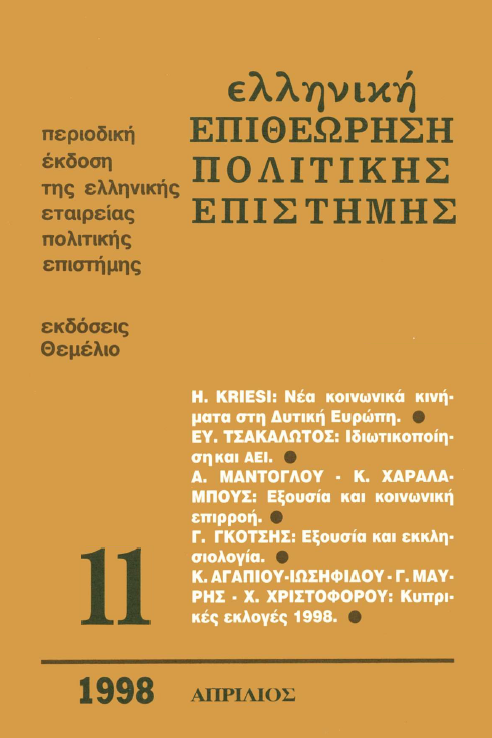New social movements in Western Europe
Abstract
The first part of this paper discusses the common social, cultural and political roots of the new social movements which have come to play a crucial role in the movement politics of most Western European countries during the seventies and eighties. It is argued that these movements are all rooted in a basic antagonism within the new middle class - a conflict about the control of professional work, about individual autonomy, and, in the final analysis about pfojects of the good life in modem society. Moreover, they are said to share a common political origin in the anti-authoritarian revolt of the late sixties, the mobilization of the New Left, and in the citizens action committees which started to mobilize in local and regional contexts in the early seventies. The second part of the paper tries to show that, in spite of the common traits shared by these movements, their level of mobilization and the ways in which they mobilize vary considerably from one country to the other, as a function of specific aspects of the national political contexts - national cleavage structures, the configuration of the left, and the institutional structure of the state. The heritage of the political past, it is argued, contributes to cross-national variations and is likely to continue to do so for some time to come..
Article Details
- How to Cite
-
Kriesi, H. (2017). New social movements in Western Europe. Greek Political Science Review, 11, 5–26. https://doi.org/10.12681/hpsa.15111
- Issue
- Vol. 11 (1998)
- Section
- Articles

This work is licensed under a Creative Commons Attribution-NonCommercial-ShareAlike 4.0 International License.
Authors who publish with this journal agree to the following terms:
Authors retain copyright and grant the journal right of first publication with the work simultaneously licensed under a Creative Commons Attribution licence that allows others to share the work with an acknowledgement of the work's authorship and initial publication in this journal.
Authors are able to enter into separate, additional contractual arrangements for the non-exclusive distribution of the journal's published version of the work (e.g. post it to an institutional repository or publish it in a book), with an acknowledgement of its initial publication in this journal.
Authors are permitted and encouraged to post their work online (preferably in institutional repositories or on their website) prior to and during the submission process, as it can lead to productive exchanges, as well as earlier and greater citation of published work (See The Effect of Open Access).



